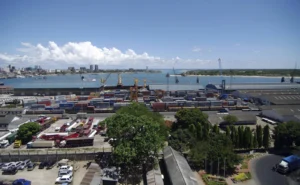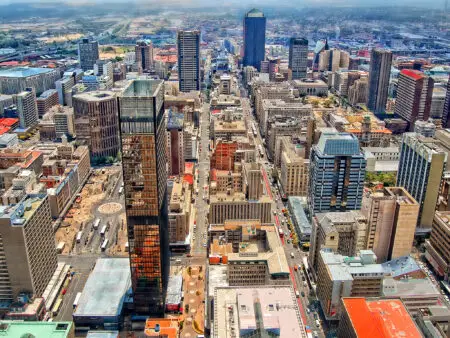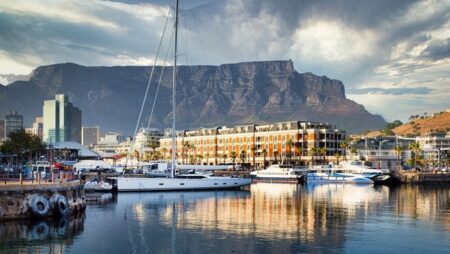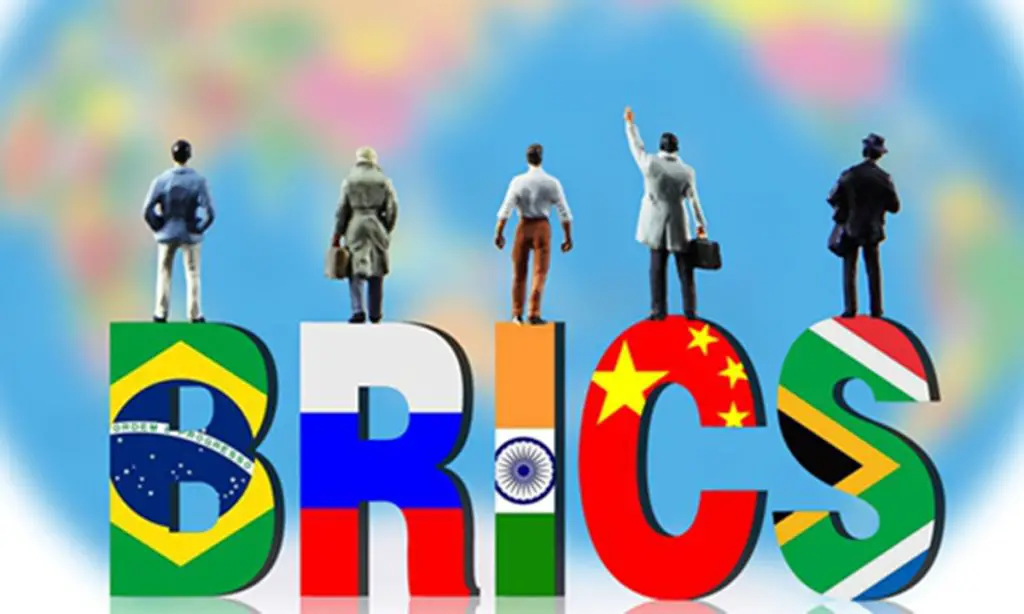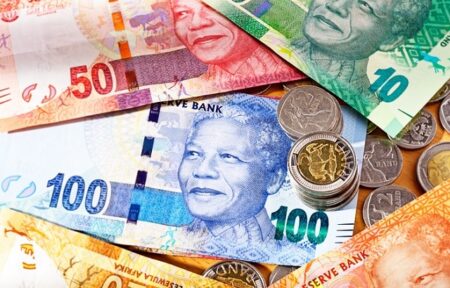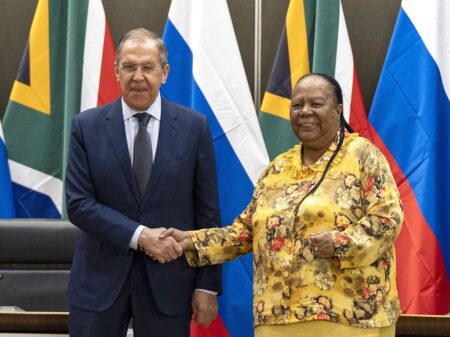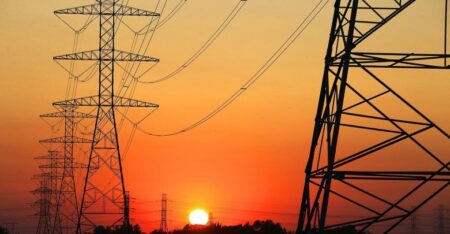- New $900,000 initiative aims to boost sustainable trade in Tanzania
- Organization of the Petroleum Exporting Countries’ (OPEC) pride in its African roots
- AIM Global Foundation pushes for stronger Gulf-Africa trade partnerships
- Investment opportunities in South Sudan’s emerging gold industry
- Family planning drive in Kenya gets 450,000 self-injectable contraceptive doses from UK
- AfDB commits $2 billion to revolutionise clean cooking in Africa, save forests
- The harsh realities of family laws for African women revealed
- Kenyan home buyers shift preferences, seek affordable housing despite market downturn
Browsing: South Africa
- Experts warn South Africa’s growth is too low to create enough jobs to absorb new workers entering the labor market.
- The country’s fiscal position is projected to deteriorate due to weakening mineral revenue. Utility Eskom’s debt bailout, wage bill, and rising debt pile more pressure.
- As a result, public debt is not expected to stabilise. And headline inflation will return to the midpoint of the target range by end 2024.
South Africa’s real GDP growth is projected at 0.1 percent in 2023, reflecting a significant increase in the intensity of power outages, and weaker commodity prices and external environment.
According to the International Monetary Fund (IMF), annual growth is expected at about 1.5 per cent over the medium term. The country is under vice-like grip of long-standing structural impediments.
South Africa’s power outage woes
For instance, South Africa is struggling with product and labor market rigidities. It …
- A new $273,716 Growth for Jobs Tourism Challenge Fund seeks to grow South Africa’s tourism numbers by engaging SMEs.
- The fund will support regional and local tourism organisations, industry associations, and district and local authorities
- The target SMEs are expected to grow and expand their tourism product offerings.
South Africa has lined up a $273,716 fund to empower small businesses in the tourism sector to enhance their offerings. The $273,716 Growth for Jobs Tourism Challenge Fund will grow South Africa’s tourism numbers through local small businesses.
Minister of Finance and Economic Opportunities Mireille Wenger said the fund will power the sector’s future growth by removing barriers.
“Our tourism and hospitality sector was hit hard by the COVID pandemic. But, it has seen a remarkable recovery with international arrivals reaching 100 percent of their 2019 figures in February this year,” she noted.
Wenger added that this would be achieved by helping …
- For South Africa, there may be no growth in 2023. Indeed, the country is likely to have slumped into a technical recession in Q1 2023.
- Absa Group survey shows South Africa’s power cuts are hitting the manufacturing sector hard.
- A sustained drop in factory output may result in job losses, eroding the economy further.
South Africa’s manufacturing activity continued to contract in April, albeit at a slower pace than in the preceding two months. The seasonally-adjusted Absa Purchasing Managers’ Index (PMI) hit 49.8 points in April 2023, up from 48.1 points in March. It, however, remained below the critical 50-point mark for the third straight month, indicating contraction in the sector.
This modest improvement was attributed to companies building up their inventories. Absa noted that the manufacturing sector faced yet another challenging month in April, with power cuts hindering output.
Eskom, the struggling state-owned utility, has imposed almost daily electricity …
In the last 20 years, Africa’s external debt has grown fivefold to about $700 billion. According to Chatham House, a policy centre in London, Chinese lenders account for about 12 per cent of that amount. As of November 2022, the International Monetary Fund (IMF) and the World Bank considered 22 low-income African countries to either be in debt distress or facing potential external debt distress.…
In recent months, the discourse about de-dollarisation has gained momentum. The sanctions against Russia have exposed the danger of over-dependence on the US dollar in international trade. The recent foreign exchange challenges have also recharged the growing efforts to bolster other currencies.
De-dollarisation could soon become a reality. A BRICS substitute to the dollar could enjoy high prospects for success, a former White House adviser, Joseph Sullivan, has noted. Sullivan served as a staff economist at the White House Council of Economic Advisers during the Trump administration. According to him, a potential BRICS currency poses a unique threat to the dominance of the US dollar in international trade.…
The global financial landscape has undergone a remarkable transformation in recent times. Remarkably, the issue of the de-dollarization of international trade is slowly but steadily gathering momentum. A rising trend toward de-dollarization is challenging the longstanding supremacy of the United States in the international financial system. As the dominant global reserve currency, the US dollar remains pivotal in international trade, investment, and financial transactions.…
- The South African Revenue Service (SARS) has exceeded the 2022 revenue collection by R123 billion after collecting a net revenue of R1.687 trillion in the financial year that ended in March 2023.
- Gross tax revenue collected exceeded R2 trillion for the first time after gross revenue rose to R 2.068 trillion over the same period.
- The gross revenue collected excludes the refunds of R381.1billion, an 18.7 per cent growth or an increase of R60 billion from 2022.
The South African Revenue Service (SARS) has reported an impressive growth of 7.9 per cent in net revenue for the 2022/2023 financial year. The net revenue collected by SARS represents year-on-year an increase of 7.9 per cent over the net 2022 amount of R1563.8 billion ($872 billion).
SARS collected a record gross amount of R2067.8 billion. The net collection after payment of R381.1 billion in refunds is R1686.7 billion. This is the …
- As a signatory to the ICC, South Africa is under a legal obligation to heed the warrant and arrest the leader of Russia.
- The European Union, as well as the United States, have all sent diplomatic envoys to South Africa urging the administration in Pretoria to broker some kind of peace talks.
- South Africa’s Minister of International Relations and Cooperation Naledi Pandor raised the issue of double standards in the ICC.
South Africa has extended an invitation to Russia’s President Vladimir Putin to attend the BRICS Summit later this year in South Africa amidst an arrest warrant issued by the International Criminal Court (ICC) on Putin for the invasion of Ukraine.
BRICS is made up of the world’s largest emerging economies of Brazil, Russia, India, China, and South Africa. The five countries will be holding their 15th annual summit in Durban South Africa later this year.
Following the issuance of …
- Nigeria, South Africa, Egypt, Morocco, and Kenya are all expected to raise borrowing costs within the next two weeks
- In contrast, monetary authorities in countries such as Ghana and Angola, where inflation is on a downward trend, are expected to maintain current rate
- US monetary tightening could slow due to banking turmoil, weakening demand for the dollar.
Major central banks in Africa are preparing to raise interest rates in order to combat persistent inflation and prevent a sell-off in their assets exacerbated by an uncertain financial system following the recent collapse of US lender Silicon Valley Bank and stress at Credit Suisse Group AG.
Nigeria, South Africa, Egypt, Morocco, and Kenya are all expected to raise borrowing costs within the next two weeks.
In contrast, monetary authorities in countries such as Ghana and Angola, where inflation is on a downward trend, are expected to maintain current rates. Six smaller African
- Zimbabwe is experiencing crippling power outages characterized by black-outs that can extend to as much as 19 hours a day.
- The electricity shortage is now common place with South Africa recently announcing Stage 6 power cuts.
- The debt capital markets, specifically the issuance of green bonds is a possible solution to rolling black-outs.
Zimbabwe is in the middle of a power crisis that can be attributed to the low water levels at the country’s Kariba Dam which has in times past been used to supplement the country’s power needs. Power outages are a part of every day living in the country.
However, the latest power crisis seems to be more intense threatening to scupper economic growth. Businesses and citizens have had to adjust to erratic power supply schedules. It is now commonplace for people to wake up at midnight to iron their clothes and use their electric appliances as this …


